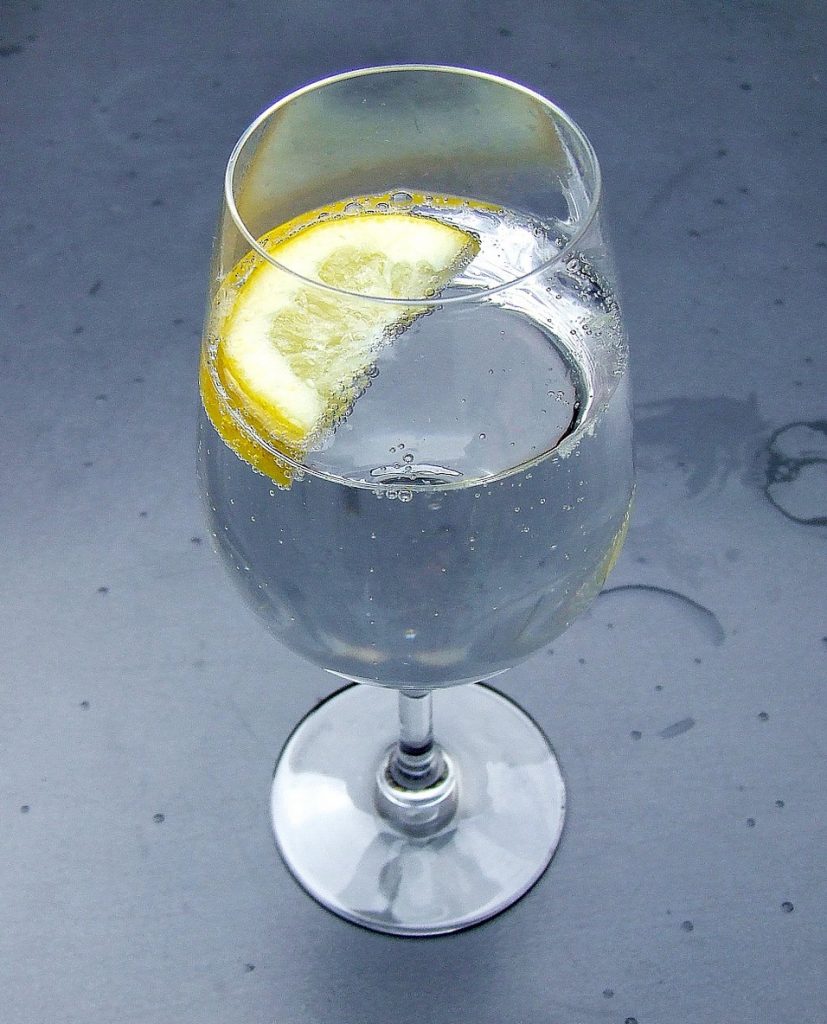
Last year, a low-cal alcoholic sensation swept the nation, and continues to be a popular trend this year. Hard seltzers hit the craft industry scene hard and fast with tempting offers on both sides of the tap. For brewers, hard seltzers are inexpensive to make. Since the primary ingredients are sugar and fruit flavorings, ingredient costs for these refreshing frizzy drinks are cheaper than beer’s hops and malt (no hate towards malt and hops though, we still love them.) For customers, hard seltzers are usually lower in both calories and ABV, acting as a “healthy” alternative beverage. Plus, they’re delicious!
Hard seltzers have two different methods of creation. The first is using seltzer water as a base, then adding in distilled white alcohol (vodka, anyone?) to develop the wanted ABV. After, fruit flavorings are thrown in for flavor variety. The second method involves fermenting sugar to create alcohol, then filtering, carbonating, and adding in the flavoring to create your hard seltzer. It’s highly recommended not to use water that contains high levels of minerals as it can affect the clarity, flavor, aroma of hard seltzer.
In today’s recipe, we have a summer-ready hard seltzer recipe cooked up by BSG’s Deborah Wood, and a peek into the TrueBrew™ Hard Seltzer Ingredient Kits through BSG Handcraft.
TrueBrew™ Hard Seltzer Ingredient Kits includes all the ingredients needed to produce a tasty hard seltzer at around 4.3% ABV, and flavored with your choice of mango or pineapple. BSG showcased these creations during last summer’s Homebrew Con in Providence, RI, and this writer can personally attest to these kits delicious and refreshing final results.
Let us know if you use today’s Lemon-Mango Hard Seltzer recipe or try out a TrueBrew™ Hard Seltzer Ingredient Kit by using hashtags #BrewWithBSG or #HomebrewWithBSG on social media!
Cheers!
Lemon-Mango Hard Seltzer
makes 5 ½ gal (21L)
Ingredients:
- 6 gal (23 l) distilled or reverse osmosis water
- 4.4 lbs (2 kg) Dextrose
- 2 x 3g Yeastex 82
- 2 x 2.5 g Diammonidium Phosphate (DAP)
- 4 g Calcium Carbonate (Gypse)
- 1/3 fluid ounces (20 ml) Natural Mango Flavoring
- 1 1/2 fluid ounces (45 ml) Lemon juice, fresh or from concentrate
- Yeast: 1 x 11.5g Fermentis SafAle US-05 ferment at 68 F. (20 C) x 8 days ( alternative yeast Lavin EC-1118)
Directions:
- On a stove top dissolve Dextrose gradually into water at 150 F (65 C) until completely dissolved. The water will be cloudy when you add in the sugar and become clear. At that time bring to a boil for 5 to 10 minutes. Pour into a fermenter and add the rest of the distilled water that is at room temperature into the fermenter. Total water should be 5 1/2 gal (21L).
- Chill to 70-77°F (21-25°C) & add to the fermenter.
- Second Yeast Nutrients addition to be made 24 to 48 hours after fermentation has started: 3 g Yeastex 82 & 2.5 g Diammonidium Phosphate (DAP)
- Prepare a yeast started in a sanitized beaker or jar with water at 75F(24C). add yeast & 3 g Yeastex 82 & 2.5g Diammonidium Phosphate (DAP) Wait till the yeast froths before pitching directly into the fermenter.
- Ferment at 68- 70 F (20 -21 C.). 24 to 36 hours after the fermentation has started add the second dose yeast nutriments.
- Prepare the nutrients in a sanitized beaker or jar with water at 75F(24C). Add directly into the fermenter and stir with a sanitized paddle.
- At end of fermentation, transfer to large sanitized plastic bucket or a sanitized keg. Add the Natural Mango & lemon flavoring.
- Transfer to a clean container or keg and proceed to carbonation
- Please note that tap water often has too many minerals and will produce a cloudy Seltzer or cause off aromas that can pe purged from the keg with C02.
- Successfully fermenting a 100% sugar solution necessitates yeast nutrients or the yeast will starve. If you can not find the recommended yeast nutriments, then procuring a hard seltzer kit is an easy alternative.
Specifications
- Original Gravity: 1.033
- Finial Gravity: 1.005
- ABV 3.8%
- 30 Calories per 100 ml